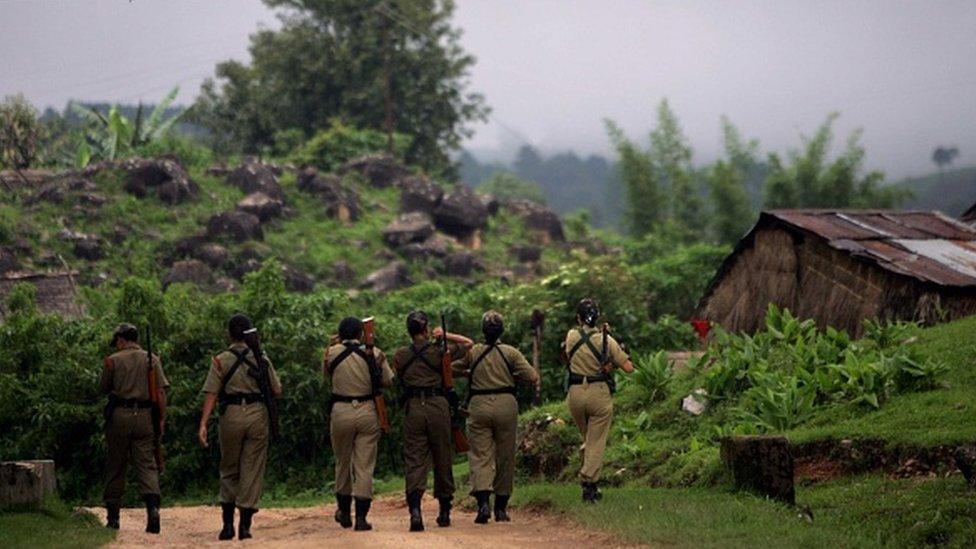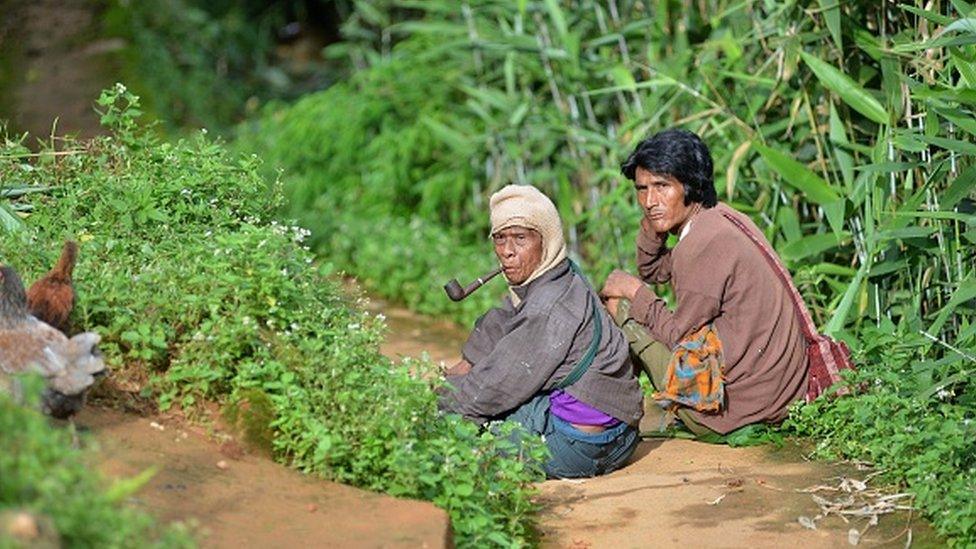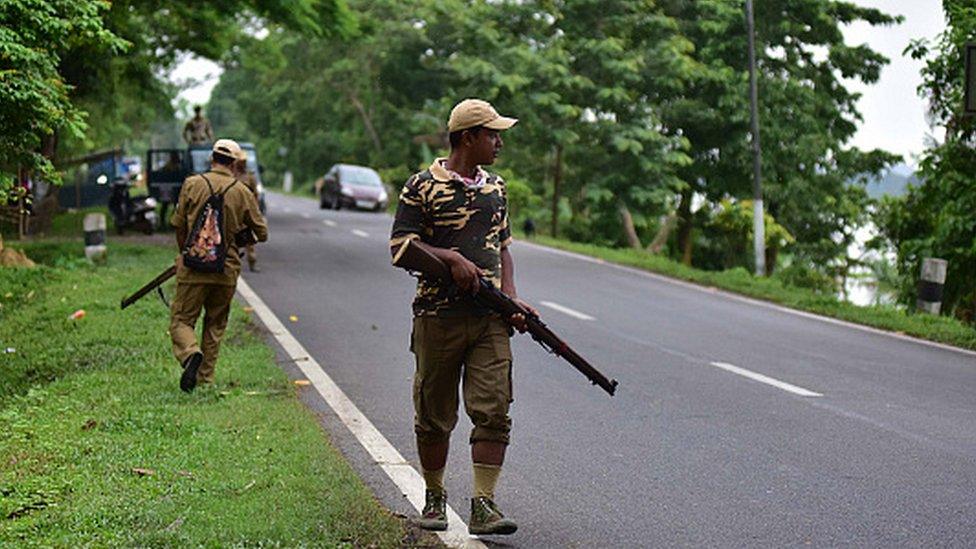Meghalaya minister quits amid unrest over former rebel leader's death
- Published

Meghalaya has a history of insurgency fuelled by demands for a separate state
The home minister of the north-eastern Indian state of Meghalaya has resigned amid violence over the death of a former rebel leader.
Cherishterfield Thangkhiew was allegedly killed during a police raid in the state capital, Shillong, on Saturday.
His death sparked mob violence and arson in the city, forcing authorities to impose a two-day curfew.
Mobile internet services were also suspended in four districts.
Officials described it as a "serious breakdown of law and order".
Thangkhiew, 54, was one of the founding figures of Meghalaya's separatist movement that vies for a separate homeland for its tribal population.
Police say Thangkhiew was killed in "retaliatory firing" during a raid at his home in Shillong. But his family called it "cold-blooded murder" - they allege the police orchestrated a "fake encounter", an Indian term for extra-judicial killings by authorities.
On Sunday, angry protesters threw petrol bombs at Chief Minister Conard Sangma's personal residence in Shillong. However, no one was hurt as the chief minister stays at his official residence.
Incidents of stone-pelting were also reported from across the city.
The state's Home Minister, Lahkmen Rymbui, called for a judicial inquiry into the matter and said he was resigning "to bring out the truth".
Insurgency in Meghalaya
Meghalaya is located in the north-east region of India, which runs from the Himalayas just below Tibet to the plains of Bangladesh, and borders the jungles of Myanmar (Burma) to the east.
Carved out of the neighbouring state of Assam in 1972, Meghalaya is home to three major tribes: the Garo who reside in the Garo hills, the Khasi, who account for state's the largest ethnic community , and live in the East and West Khasi hills; and the Jaintia who are concentrated in the Jaintia hills.
The three communities are entitled to 80% of government jobs in the state through quotas.
Meghalaya shares a border with Bangladesh and has seen decades of migration from the neighbouring country as well as from other parts of India - Bengal, Punjab and Bihar.
This has sparked anxieties of indigenous communities who feared becoming a "minority in their own homeland" because of the influx of "outsiders".
Over the years, several student unions in the state have expressed concerns that migration from other regions would disrupt the tribal population's way of life and culture.
It was a culmination of these "anti-outsider sentiments" that led to the formation of Meghalaya's first militant group, the Hynniewtrep Achik Liberation Council, in 1992.
Initially, the group comprised both the state's major tribes, the Khasis and the Garos.

Meghalaya is home to three major tribes
But it later split apart amid differences over reservation in government jobs and colleges.
The division resulted in the formation of two new factions - the Hynniewtrep National Liberation Council (HNLC), which claims to represent Khasi interests, and the Achik Liberation Matgrik Army that demands a separate state for Garos.
Thangkhiewas was the founding general secretary of the HNLC. He surrendered before the Meghalaya government in 2018 after reportedly spending years in hiding in Bangladesh.
What happened now?
Police claim they raided Thangkhiew's house in connection with an an IED blast that injured two people in Shillong last week.
But when the team tried to enter his house, Thangkhiew allegedly attacked them with a knife in an attempt to escape, leading the police to fire at him, according to a statement.
The police also said they seized ammunition and incriminating documents from his home.
The rebel leader's family and supporters rejected the police version and said his death was an extra-judicial killing.
On Sunday, hundreds joined Thangkhiew's funeral procession in Shillong, while local outfits called for a "black flag day" to mourn his death.

How the battle of Kohima and Imphal changed the fortunes of British-led forces in Asia in WW2
- Published9 August 2021

- Published30 July 2021
